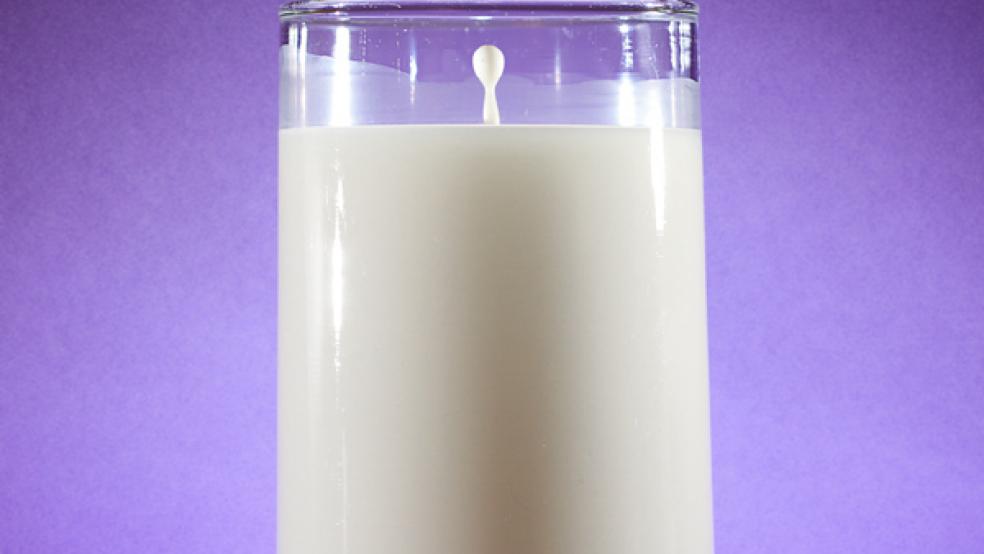You may never have to give your milk the sniff test again. New research has discovered a way to make refrigerated milk last two months by rapidly heating and cooling it after pasteurization.
The method developed by Millisecond Technologies -- called “low temperature, short time” -- could play a role in combatting the country’s food waste problem.
Scientists found that heating milk that already been pasteurized to 10 degrees Celsius (approximately 50 degrees Fahrenheit) for less than one second eliminates 99 percent of bacteria that pasteurization didn’t kill. The milk’s shelf life increased after the new method to 63 days from the 14 to 35 days that’s normal for pasteurized milk.
Related: The 8 Highest-Calorie Restaurant Meals in America
“With the treatment, you’re taking out almost everything,” Bruce Applegate, associate professor of food science at Purdue University and coauthor of the new study, said to Futurity. “Whatever does survive is at such a low level that it takes much longer for it to multiply to a point at which it damages the quality of the milk.”
The researchers found that test participants didn’t find any differences in color, smell, taste or aftertaste between regular pasteurized milk and the milk that underwent the new process.
The study says this low-energy, add-on method could make it easier for manufacturers to ship milk over long distances and generally improve sustainability. Food waste has become a focus for supermarkets and the broader food industry, as consumers take on the issue. For example, Walmart has committed to selling ugly produce to cut down on waste.
Related: The Flossing Controversy, Explained
Milk that lasts two months would have a longer shelf-life after arriving at the supermarket and likely have a later sell-by date. That may convince Americans to keep milk in their refrigerators longer. More than half of consumers throw out food past sell-by or best-by dates every time, according to a 2014 survey of grocery shoppers from the Food Marketing Institute.
The new method may also convince states, which regulate sell-by dates for milk and other foods, to lift their restrictive labeling laws. A Harvard Food Law and Policy Clinic film this year shows the effects of a Montana law requiring milk’s sell-by date to be no later than 12 days after pasteurization. After that time, the milk can’t be sold or donated, according to the state law. The result? Thousands of gallons of milk are thrown out and milk prices in the state have gone up.





